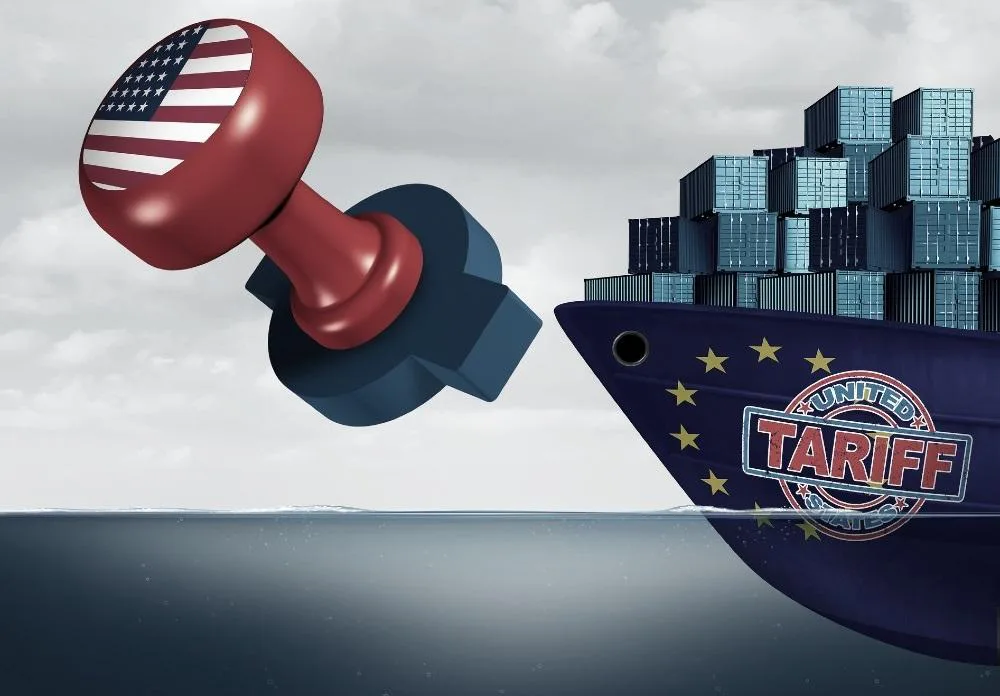Last Updated on February 26, 2024

Section 232 is a lesser-known trade policy that has recently created waves in industries like steel and automotive manufacturing. This brief but powerful section of U.S. trade law gives the President authority to impose tariffs and quotas that restrict certain imports. This is if they are considered threats to national security. As the current administration explores applying Section 232 more broadly, companies with Mexican manufacturing operations are taking note. How could the expanded use of Section 232 impact on manufacturing in Mexico?
What is Section 232?
Section 232 serves as the cornerstone of U.S. trade law. It empowers the President to investigate and act against imports that threaten national security. This provision grants the authority to impose tariffs, quotas, or other trade restrictions on foreign goods that may jeopardize essential domestic industries. Most notably, it led to the imposition of tariffs on steel and aluminum imports, including those from Mexico, in 2018. These tariffs raised costs for companies relying on these materials.
Impact on Manufacturing in Mexico
Manufacturing operations in Mexico are intricately linked to the U.S. market, with a substantial portion of goods produced destined for American consumers. Consequently, any alterations to U.S. trade policies, including those dictated by Section 232, have profound ramifications for manufacturing entities in Mexico.
Section 232 tariffs reduced imports of affected steel products by 24 percent, increased the price of steel products in the United States by 2.4 percent, and increased U.S. production of steel products by 1.9 percent. U.S. production of steel was $1.3 billion higher in 2021 due to section 232 tariffs.
MSCI
Navigating Tariffs and Trade Restrictions
The imposition of tariffs or trade restrictions under Section 232 can significantly disrupt supply chains of companies with manufacturing operations in Mexico. Increased costs associated with importing goods into the United States can erode profit margins and diminish competitiveness in the marketplace.
Assessing Risk and Diversification
In light of Section 232 measures, Mexican manufacturing companies must adopt a proactive approach to mitigating risks and adapting to evolving trade dynamics. Diversifying supply chains, exploring alternative markets, and optimizing operational efficiency are essential strategies to navigate trade policy uncertainties.
We strongly recommend U.S. exporters maintain close contact with their Mexican clients and partners to be aware of the legal, tax, and customs implications of this update. There is still a lack of clarification on requirements for compliance, and published guidance by the Mexican authorities may be hard to interpret. However, failure to comply with issuing the updated invoicing CFDI/Complemento Carta Porte with the bill of lading information will trigger fines and may result in shutdowns of the Mexican companies involved for three to 15 business days.
International Trade Administration
The Role of Strategic Planning
Strategic planning emerges as a linchpin for companies seeking to weather regulatory changes. By anticipating potential impacts and implementing agile strategies, businesses can fortify their resilience and capitalize on emerging opportunities amidst fluctuating trade environments.
Conclusion: The Influence of Section 232 and Its Impact on Manufacturing in Mexico
In conclusion, the influence of Section 232 reverberates across the manufacturing landscape in Mexico, underscoring the interconnectedness of global trade dynamics. Navigating its impact on manufacturing in Mexico demands foresight, adaptability, and strategic foresight to thrive in an ever-evolving economic milieu.
FAQs on Section 232 and Impact on Manufacturing in Mexico:
1. What industries in Mexico are most affected by Section 232 tariffs? Industries closely tied to the automotive, steel, and aluminum sectors are particularly susceptible to the ramifications of Section 232 tariffs.
2. How can companies mitigate the impact of Section 232 tariffs on manufacturing operations in Mexico? Companies can explore diversification strategies, optimize supply chains, and leverage technological innovations to mitigate the impact of Section 232 tariffs.
3. Are there any exemptions or waivers available under Section 232? Yes, certain products or countries may receive exemptions or waivers from Section 232 tariffs based on specific criteria determined by the U.S. government.
4. What steps should companies take to stay informed about changes in Section 232 policies? Companies should closely monitor updates from governmental agencies, engage with industry associations, and seek guidance from legal and trade experts to stay abreast of Section 232 developments.
5. How do Section 232 tariffs influence investment decisions in Mexico's manufacturing sector? Section 232 tariffs can influence investment decisions by prompting companies to reassess the feasibility and risks associated with establishing or expanding manufacturing operations in Mexico.
About NovaLink
As a manufacturer in Mexico, NovaLink employs a unique approach that transcends the traditional model of shelter production. More than just the location of your manufacturing, we would like to become a partner in your manufacturing in Mexico. You will be able to relocate or initiate manufacturing for your company in Mexico in a low-cost labor environment with very little delay or up-front costs. Find out how we can help you by handling the manufacturing process.
There are NovaLink facilities in the border cities of Brownsville, Texas, Matamoros, Mexico, and Saltillo, Mexico.